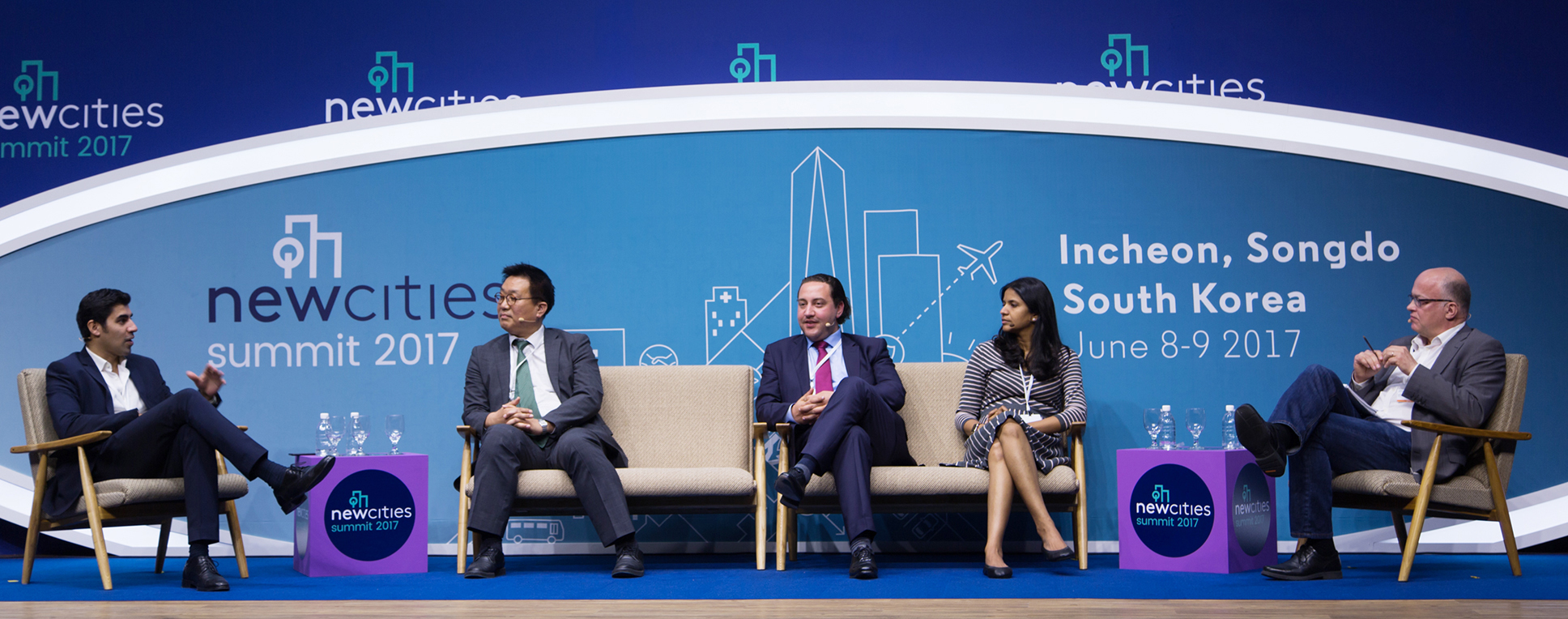
The Detail Is in the Data
juillet 19, 2017 — Uncategorized
This post is part of our Thriving Cities discussion series, following the sixth edition of the NewCities Summit in Incheon Songdo, South Korea in June 2017.
Cities are becoming more intelligent as new technologies produce ever more refined data, allowing us to map the needs of urbanites in real time. More than ever before, cities can understand and provide their citizens with the services they require. How can a city measure its efficiency, quality of life and security? Can the ‘smart city’ promote wellbeing?
Jong-Sung Hwang, Lead Researcher, Smart Cities and Government 3.0, National Information Agency of Korea noted that cities are putting an emphasis on data more than ever before, as governments try to redesign their approach to smart cities. As more and more data becomes available, we must not underestimate the importance of open data. “The first step is to provide as much free flowing data as possible,” he said.
The issue is not merely data accessibility, but data literacy. Parag Khanna, Managing Partner at Hybrid Reality Pte Ltd, said there is no lack of data in the world – what is needed is a critical strategy when it comes to interpreting that data.
The Chief Technology Officer for Washington D.C., Archana Vemulapalli, said: “Cities that have traditionally been data producers have always dealt with structured data. But this data has become unstructured due to social media.” She claimed that individuals and cities are now both data producers and consumers, making data collection increasingly difficult as cities are not prepared for the high-tech and shared economy models.
On the other hand, Khalil Laaboudi, Senior Consultant with Smart and Sustainable Cities at Ericsson, said that having an abundance of data is a good thing as it helps policymakers design a better roadmap for smart cities.
As panel moderator Ludwig Siegele, Technology Editor at The Economist, opened the floor for questions, one participant asked whether cities should leverage data from large corporations such as Uber or Airbnb which have become powerful players in the data game in recent years. Khanna said we must use localized sharing apps, rather than giants, and gather data from as many different sources as possible. Vemulapalli agreed adding that government is still extremely powerful in its ability to advocate on behalf of broader needs of citizens.